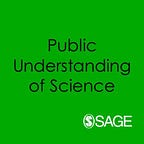When Science Meets Power
Review by Birte Fähnrich
The book stands out by dealing with the science-policy interface in a very global way as it connects different issues such as governance, participation and policy advice that, in fact, are very much interwoven but often dealt with separately.
The relations of science and power, their interlinkages and interdependencies, their mutual needs and expectations, and the problems, pitfalls and challenges related to these intersections have been the object of intense academic and political discourse and have led to myriads of publications over the last decades. Obviously, the pace of developments of science and society and the increasing needs for substantive knowledge in political and societal decision-making emphasise the importance of the relationship of science and power. Diagnoses such as those of the knowledge society, the connectedness of societal risks in a global dimension, the increasing influence of private power over politics and calls for remaking societal participation in digital times have formed the framework for these debates for several decades.
With this book Geoff Mulgan attempts to add a new perspective. The highly experienced government advisor and professor for science and public policy at University College London aims — in the publisher’s words — for nothing less than “new ways to organise democracy and goverment […] to better shape science and technology so that we can reap more of the benefits and fewer of the harms [of scientific discovery].”
Indeed, Mulgan’s view of the science-policy interface comes with a number of interesting observations and interpretations. The book stands out by dealing with the science-policy interface in a very global way as it connects different issues such as governance, participation and policy advice that, in fact, are very much interwoven but often dealt with separately. In a time of intensifying scientism in society and politics on the one hand and rising science-cynical populism on the other hand, the book comes up with bold theses.
One of Mulgan‘s starting points is the assumption that the freedom of science changes from a desirable ideal to a problem when it transcends the realm of pure knowledge production and reaches into questions of the regulation of science and technology and related risks. Mulgan argues that science lacks systems for metacognition which makes scientific self-governance a problem.
The author also highlights the contradictions at the interface of science communication, policy advice and science governance: politics is dependent on scientific knowledge and endeavour which it can only absorb in a scientifically moderated way, while at the same time it must anticipate the risks of scientific progress and regulate science. It thus comes as no suprise that the author regards current politics as “ill-suited to the task of governing science“. Also, Mulgan has a valid point in stating that “a lattice of connections“, i.e. between very different institutions and formats of scientific policy advice, has developed in recent times but these “do not go far enough and sometimes miss the point“.
As a consequence of this deficit (and Mulgan’s diagnosis of a deficient discourse around this), the author makes the case for a “new generation of institutions“ that may help to create a more effective integration of science, politics and ethics. In developing this new design, the six chapters of the book take the readers on a long journey from the emergence of modern science, through the use and misuse of scientific knowledge and scientists in democratic and authoritarian systems, the problems of global science governance in times of capitalism and increasing power of private firms, and it ends with an approach at a synthesis. This journey brings new insights and valuable connections, it covers interesting examples throughout history and also takes an informative look beyond the Western world. All this makes the book an interesting and inspiring read.
However, there are some weak points. The first concerns the lack of insights from social science evidence. Not only STS and philosophy, but also sociology, political science, communication science and even cognitive science have dealt intensively with the nexus of science and politics in recent decades and have also brought empirical findings to light. Unfortunately, this is often under-recognised in this type of advisory literature. There are (partly generic) references to political theory and a lot of anecdotal evidence, but hardly any substantial findings from empirical scientific work to inform the arguments. By claiming to do things better and differently, the author has missed an opportunity.
Another opportunity is also missed to take greater account of developments around the digital transformation of society, which undoubtedly has an impact on science policy consultation and science governance. Mulgan sees developments such as AI primarily as the subject of necessary policy advice but not as an influencing factor for changes in science itself (analogous to open science, big data, etc.) and for the intersections of science and politics in digital times.
The most significant weakness of the book, however, is that Mulgan fails to achieve his declared goal of developing genuinely new approaches to rethinking the relationship between science and politics. After a rather lengthy synthesis chapter, the listing of already familiar distinctions between forms of knowledge and guidelines for metacognitive thinking is a rather disappointing solution. This is not entirely surprising because — as the author himself writes — the field is so complex and new solutions are difficult to develop. But it is also a pity that the book thus “only” joins the ranks of existing problem-focused publications and does not take a step forward.
Birte Fähnrich is adjunct professor at the Institute for Media and Communication Studies, Freie Universität Berlin, and senior policy officer at the German Federal Ministry of Education and Research. She is co-editor of two handbooks and several special journal issues on science communication. Her work deals with questions of expertise in digital contexts and communication at the science policy-interface.
